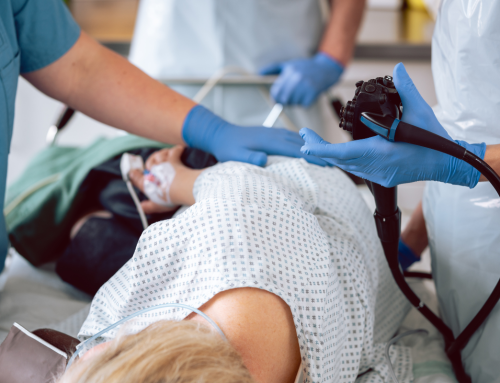
I had the pleasure of joining Ruschell Boone on NY1 to talk about colorectal cancer and the importance of getting screened.
During our interview, we discussed the colon, how it functions, and how early screenings can greatly improve survival rates.
Thank you to Ruschell and NY1 for having me to discuss this incredibly important topic during Colorectal Cancer Awareness Month!
Listen to our full conversation here or read a summary of our interview below.
Interview Transcript Summary
Ruschell Boone, NY1: March is Colorectal Cancer Awareness Month and it comes at a time when studies show that more young people are developing the disease. That has many doctors and health advocates sounding the alarm . . . joining me today is Dr. Lynn O’Connor, chief of Colon and Rectal Surgery at both Mercy and St. Joseph’s hospitals. This is Colorectal Cancer Awareness Month. Tell us what it is.
Dr. O’Connor: It’s really important for people to get screened throughout the entire year, however, March is the month that we let people know the importance of screening, healthy eating, and all the ways to help prevent colorectal cancer.
Ruschell Boone, NY1: Tell me what the colon does . . . what does it do?
Dr. O’Connor: It’s a 5-6 foot long organ in our body. It helps absorb nutrients, electrolytes, and water off of partially digested food and the remainder of it is a waste system that helps move the waste throughout our bodies.
Ruschell Boone, NY1: How does a tumor develop there?
Dr. O’Connor: Tumors are really just normal colon cells that keep growing and develop into a polyp. And then that polyp keeps growing and eventually turns into cancer. Which is why when you do a screening colonoscopy you’re able to prevent colon cancer if you can get those polyps before they turn.
Ruschell Boone, NY1: Who are the folks who are most at risk for this?
Dr. O’Connor: Usually colorectal cancer was an older disease where you had people 50+ years of age getting it. Unfortunately, now we’re finding an alarming rate of younger patients with early-onset colorectal cancer.
Ruschell Boone, NY1: Tell us about screening and what it entails.
Dr. O’Connor: I always tell my patients that the best screening test is the one that is done. . . the screening colonoscopies are the only modality in which it is both diagnostic so we can go around, find a polyp, and remove it, which is therapeutic. If you’re screened on time, we can find a cancer that is early, and there is a greater chance of a cure.
Ruschell Boone, NY1: What happens if someone goes to the doctor and discovers that they do have cancer? What’s the next step?
Dr. O’Connor: The next step if you do have cancer is a full workup to make sure that it is confined to the colon, because, if we find it early and it’s confined to the colon, that’s a 95% chance survival rate. But what patients have to do after that if it is colon cancer, they’ll get a blood workup, check CTA levels, a CT scan to make sure it hasn’t spread, and for folks who have rectal disease, we usually have them do an MRI in addition to that.
Ruschell Boone, NY1: Can you tell me some of the symptoms? If people are experiencing them, what should people do?
Dr. O’Connor: We try to get people in before they experience symptoms, but if they are symptoms such as rectal bleeding, weight loss, abdominal pain, change in bowel habits, that is when you should speak with your doctor.
Ruschell Boone, NY1: How did you get to where you are?
Dr. O’Connor: I absolutely love operating on patients and I love the fact that this is a disease in an area where you can do preventative treatment. It’s empowering, educational, and you’re really able to affect change and save lives.
Ruschell Boone, NY1: Before I let you go, can you tell folks to go get screened?
Dr. O’Connor: It’s so hard. Unfortunately, a third of Americans who are eligible to get screened, don’t. I want people to know that the screening age is now 45 years old. Because of the early onset colorectal cancer, we’re finding that they lowered the screening age. So get screened and if you know someone who has symptoms, you should take them to get screened.




